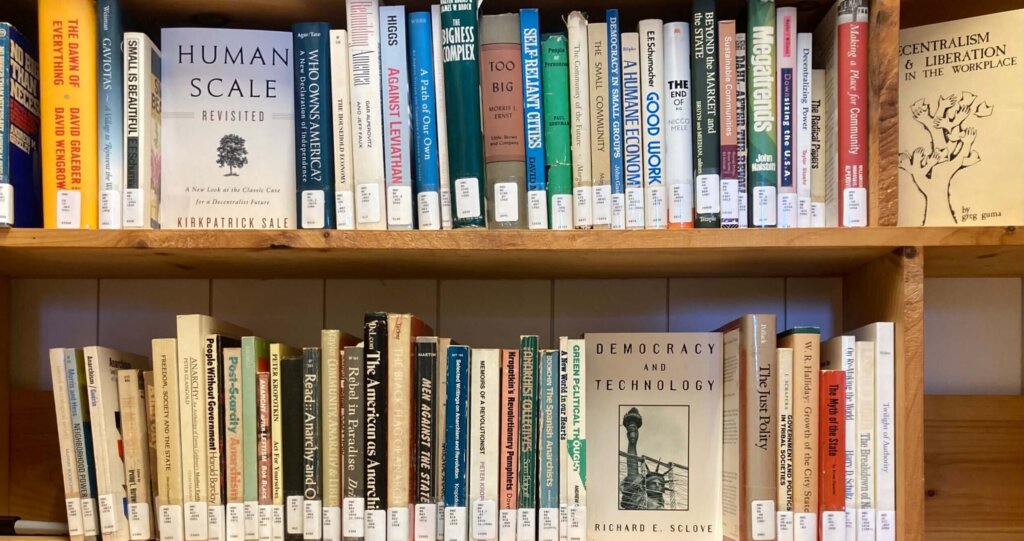The Decentralist File

I grow more tired of online reading every day.
It is by nature hard (something about the pixels and how our eyes work), but then the publications need to generate revenue, so they gum up access with pop-up screens and username requests, then gum up the prose with more pop-up screens and advertisements, many of which flash or change colors and otherwise punch you in the ocular to get your attention.
It's 100% understandable: Without revenue, it's hard for a publication to pay writers, and if writers don't get paid, they won't get good prose and, instead, you're stuck with the kind of drivel you find at TDE.
But then I come across something that makes it all worth it.
Like what I found last night: The Decentralist File. It's hosted by the Schumacher Center (named for E.F. Schumacher, whose A Guide for the Perplexed ranks in my Top 10 books of all time . . . James Schall put it on his list of eight books someone should read if he wishes to pursue the highest things).
The file is maintained by John McClaughry (featured in this short Bill Kauffman essay) and features a trove of "localist" writings. "Decentralism" isn't the same thing as "localism," but they're correlated, much like cutting processed food and sugar is correlated to eating more simple meats and vegetables: Cutting out sugar is "decentralizing"; adding meats/vegetables is "localism."
Stretching from Lao Tzu through Wendell Berry, the Decentralism File’s authors include Jane Jacobs, George Kennan, Paul Goodman, Norman Mailer, Robert Nisbet, and unexpected communists (Rosa Luxemburg!) and anti-communists (Richard Nixon!). The New Left Students for a Democratic Society’s Port Huron Statement is here, as are manifestoes from Plaid Cymru of Wales and the Cornish Nationalist Party.


